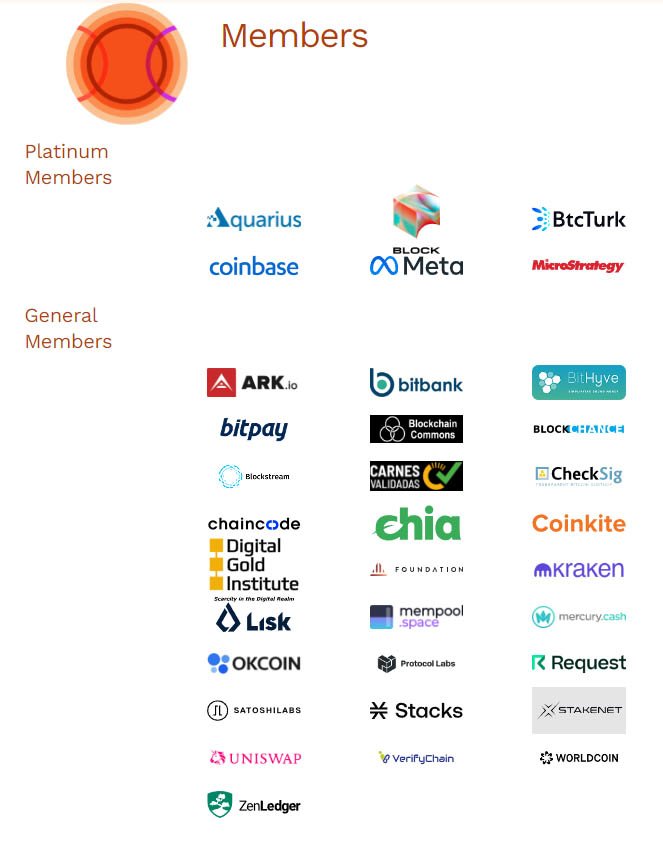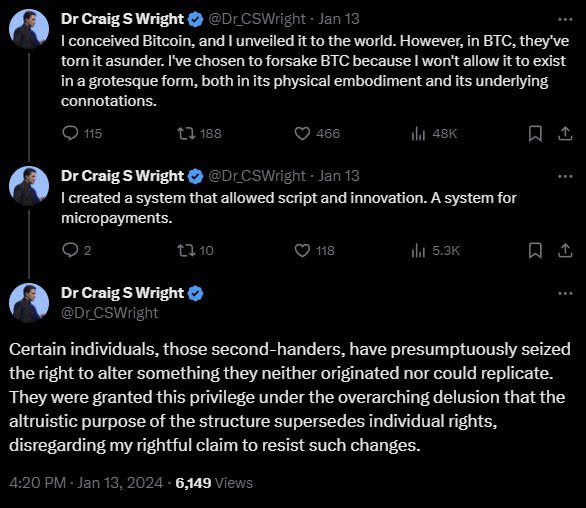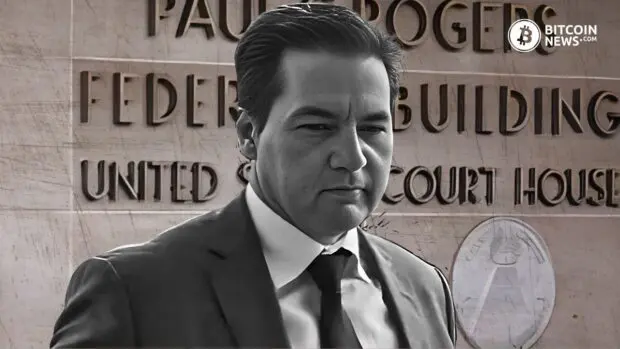The Bitcoin community awaits a watershed moment as the Crypto Open Patent Alliance (COPA) takes on the high-stakes legal battle against Craig Wright, who claims to be Satoshi Nakamoto, the mysterious creator of Bitcoin.
Commencing on February 5, the trial not only challenges Wright’s identity but also carries significant implications for the legal and operational underpinnings of Bitcoin development within the open-source community.
Key Trial Phases
The trial kicks off on February 5 with oral openings, setting the stage for a rigorous legal clash. Over the subsequent days, the focus shifts to the cross-examination of Craig Steven Wright, a controversial figure in the digital assets realm. Wright faces allegations of presenting questionable evidence, including manipulated metadata and dubious documentation, to support his claim as Nakamoto.
Outlined in a comprehensive timeline, the trial’s critical junctures span oral openings, cross-examinations, and expert testimonies. The proceedings extend into March, emphasizing the complexity and significance of the case.
| Date | Activities | Duration |
| Feb. 5 | Oral Openings | 1 day |
| Feb. 6 – 9 | Wright’s cross-examination | 6 days |
| Feb. 12 – 13 | Wright’s cross-examination continued | 6 days |
| Feb. 14 – 16 | Cross-examination of remaining fact witnesses for Wright | 3.5 days |
| Feb. 19 – 23 | Cross-examination of fact witnesses for COPA / developers | 4 days |
| Feb. 23 – Mar. 1 | Cross-examination of digital forensic experts | 5 days |
| Mar. 1 | Cross-examination of both cryptocurrency experts | 0.5 days |
| Mar. 12 – 15 | Oral closing submissions | 4 days |
COPA’s Legal Strategy
Notably, COPA, supported by major industry players including Block, Coinbase, and Meta, acts as an advocate for open-source development.

It strategically aims to dismantle Wright’s alleged fraudulent acts associated with his Nakamoto identity claim. Their approach involves separating Wright’s specific actions from the broader Nakamoto identity, with a focus on the validity of evidence, including 97 recently surfaced documents.
These files, claimed by Wright to be vital to his identity, have stirred controversy and raised accusations of evidence fabrication within the Bitcoin community.
The court’s decision extends far beyond Craig Wright, carrying profound implications for the entire Bitcoin ecosystem.
Craig Wright Puts Open-Source Developers at Risk
Notably, Wright is currently involved in multiple lawsuits in the UK that depend on his claim being true. He alleges that various organizations and individuals in the digital asset community have violated his copyright in the Bitcoin whitepaper, Bitcoin database, and other intellectual property linked to the development of Bitcoin.

Wright argues that, based on this claim, these entities cannot host the Bitcoin whitepaper or use the intellectual property. This claim has a significant impact on the well-being of open-source developers facing legal challenges initiated by Wright, states COPA by noting:
“This claim, in effect, stops the development of bitcoin, chills and silences developers with the threat of litigation, and indeed undermines the entire spirit of the open-source community.”
The fear of legal reprisals has slowed down contributions to the blockchain, underscoring the trial’s significance in shaping the future of Bitcoin development and ensuring the safety of its contributing community. COPA states on its website:
“COPA’s lawsuit is a matter of public interest, to create more certainty and reasonable safety for those who see the world-changing potential in bitcoin.”
As the trial unfolds, the global Bitcoin community watches with intense anticipation, recognizing that the verdict holds the power to illuminate the identity of Nakamoto and impact the development of one of the world’s most influential blockchains.










